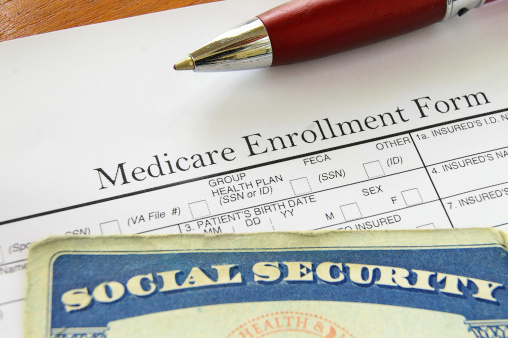
For more than two decades we have helped individuals across Kentucky get SSD benefits. We have the legal skills and experience to handle the paperwork and aggressively fight for your rights.
Voted Sixth Year in a Row
 If you are considering trying to return to work while you are receiving Social Security disability (SSD), you need to understand what a trial work period is and how it may affect your benefits. This applies not only to your eligibility to receive monthly income, but also to your eligibility for other benefits, such as Medicare.
If you are considering trying to return to work while you are receiving Social Security disability (SSD), you need to understand what a trial work period is and how it may affect your benefits. This applies not only to your eligibility to receive monthly income, but also to your eligibility for other benefits, such as Medicare.
An experienced Lexington disability benefits lawyer at the Frank Jenkins Law Office can help you protect your benefits while you try to re-enter the workforce. We can answer questions about your rights and obligations during the trial work period and help ensure that you do not do anything to jeopardize the income and medical coverage you need.
The monthly income provided through Social Security Disability Insurance (SSDI) provides a lifeline to ensure that disabled workers have financial support when they need it, but health insurance through Medicare may be even more important to some individuals who are on SSD.
Buying health insurance can be costly when you have a serious medical condition or impairment. Going without insurance is not a realistic option if you have a medical problem severe enough to qualify you for disability benefits.
To ensure they have health insurance coverage, SSDI recipients become eligible for Medicare after a 24-month qualifying period. During the waiting period, you may be able to receive continuing medical insurance benefits from a former employer.
Eligibility for Medicare is not something that you want to lose. If you are considering going back to work, you need to understand what will happen to this insurance coverage.
The SSA knows that people won’t try to go back to work if they risk losing income and health insurance, so it has created a trial work period to encourage re-entry into the workforce.
The trial work period is a time during which you continue to receive SSD benefits despite the fact that you are holding a job. Under the rules of the trial work period, you can work for nine months total within a rolling 60-month period before your benefits are affected. In other words, until you have worked for a total of nine months during a five-year period, you can still receive your SSD benefits.
A “work-month” that counts toward the nine months is one in which you earn $750 or more after expenses or one in which you work for 80 hours or more building or operating your own business. After you’ve completed your trial work period, your monthly benefits will stop.
You’ll still be in an extended eligibility period that lasts for 36 months and allows you to receive SSD income in any of those months when you earn less than $1,040, or $1,640 if you are blind (as of 2013). Finally, once this time passes, you will enter into a five-year expedited reinstatement period during which your benefits can be started again with no new application if you become unable to work.
Although the trial work period ensures that your income is secure, you may also have concerns about your eligibility for Medicare.
The SSA allows you to continue to receive Medicare coverage during the entirety of your trial work period. Once your trial work period has ended, you may continue to receive Medicare Part A coverage for no less than 93 months. After this 93-month period has ended, you can generally still continue to keep your Medicare Part A coverage as long as you are willing to pay your premiums.
These rules ensure that the disabled do not have to risk their health insurance coverage in order to give working a try.
An experienced Lexington disability lawyer at the Frank Jenkins Law Office can assist you in understanding and protecting your Social Security disability benefits, including Medicare. We can help you with all aspects of an SSD case and answer any questions that you may have about your rights and obligations.
Call us now at 859-389-9344 or contact us using our online form for a free consultation.